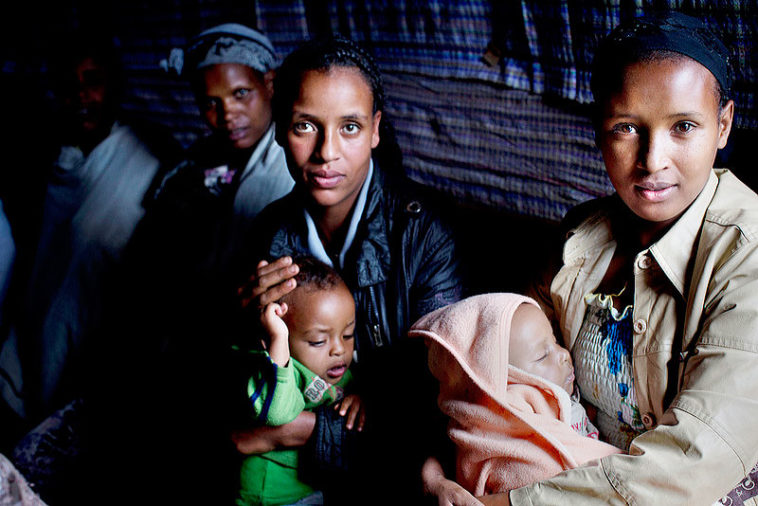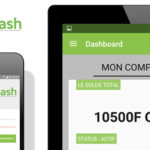We like to say, “There’s nothing more important than good health.” But what if the facilities and resources that support good health are 40 miles away? Or you have to give up valuable work time to look after it? Staying healthy isn’t so easy.
This time, we review two digital health start-ups that make staying healthy easier and less expensive. One helps users get rid of expensive wages-for-health trade-offs. The other reduces the odds of infant mortality.
Getting Rid of Those Opportunity Cost Blues
Your cough has turned nasty. You might have more than just a cold, but you don’t know where to find the local doctor or medical clinic. Or, you know where the doctor is, but the clinic’s too far to leave work. Or, you’ve had a rash that doesn’t go away. Should you be concerned?
Wherever medical services are scarce, these are not idle questions. Seeking medical help can be an expensive proposition in terms of time or money.
A product by Nairobi’s Shimba Technologies Ltd, MedAfrica helps improve the health of communities and regions where people use it. Based on the cloud delivery model, SMS technology and cell phones, MedAfrica is inexpensive, fits in well with local mobile technology, and can be scaled rapidly to serve large groups of users.
After registering, users employ their phone or mobile device to:
- Search for information about medical symptoms and conditions.
- Find a practitioner, a medically certified healthcare provider in their area.
- Ask medical professionals questions about their condition.
- Diagnose your condition with a systematic feature that helps you identify what’s wrong.
- Get an appointment.
Increased access to these healthcare services help MedAfrica users:
- Reduce travel to clinics. Many trips can be eliminated.
- Reduce out-of-pocket costs. Patients can avoid paying for in-person consultations.
- Avoid opportunity costs. Quick and effective advice or diagnoses reduces the time and money patients spend away from home and work.
- Eliminate the chance of engaging quacks. MedAfrica uses only certified healthcare professionals.
So far, MedAfrica has relied on the backing of phone operators like Orange and Nokia and tech companies like Samsung. Long term, the company hopes to grow by running ads for health-related services or offering premium subscriptions.
Ongoing Monitoring that Keeps Mothers and Babies Well
In rural Kenya, where medical clinics are few and far between, obstetrical procedures are often performed too late to improve medical outcomes of pregnant mothers and newborn children. Long trips to the clinic and late treatment often contribute to infant mortality and maternal deaths.
Now cloud-based technology, SMS and handheld phones make long trips to the clinic unnecessary. A phone-based information service advises parents what to look for at certain times for certain illnesses, throughout pregnancy until a child’s fifth birthday.
Totohealth services help reduce maternal and child mortality by pushing relevant healthcare information about mothers and children. The platform enables mothers to monitor their pregnancy and the health of their child.
The Totohealth system includes:
- A cloud services-based platform, which sends mothers two SMS messages each week, one about their health and one about their child.
- Cellphones used by mothers. Information, instructions, healthcare questions and their answers are sent and received by SMS.
- A full-time medical doctor, who fields questions that are sent to a central health desk. But care is personalized: the platform always refers mothers to the same doctor at the same hospital.
- Two new products. Totopack, which contains 18 items to ensure a safe and clean delivery. It goes for Kshs. 2900 and is sold to county governments and NGOs. The Totobox starter kit contains items needed after the birth.
Currently, more than 13,000 Kenyan parents have registered for Totohealth services. Company financing is supported by awards, angel investors and grants. These include:
- US$60,000 from Indigo Trust, Spark International and one angel investor.
Indigo’s funding of US$17,664 will be used to help the team expand their services to additional counties in Kenya and support data verification, monitoring and evaluation activities.
- The company is also seeking US$300,000 to expand operations to the Democratic Republic of Congo (DRC), Nigeria, Uganda and Zimbabwe.
Totohealth has established partnerships with four Kenyan counties: Nairobi, Machakos, Nandi and Garissa. The number of subscribers in these four counties is around 12500. The program also has an additional 1000 subscribers from 29 other counties in the country.
A Different Emphasis
By now, you’ve probably guessed: healthcare startups aren’t always built to make profits. Often, they grow from the energy and know-how of social entrepreneurs, who are experts in improving peoples’ lives.
Digital health startups are a bit different than the companies we’ve described in earlier posts. That makes certain aspects of building m-health startups especially important.
To address these points, it helps to get clear answers to these questions:
- Do you really know how or if people would actually use your app or service? Because experienced locals have invaluable knowledge of how things really work in the field, having them pitch ideas would be a good idea. And, field tests really help. Totohealth, for example, did field tests in specific Kenyan counties. Infant mortality was reduced from 0.031 to 0.018 during the testing period.
- Can potential users of your m-health product or service pay a high enough price to generate revenue? Yes, this is Startups 101, but it’s also a terrible problem for m-health startups. To survive in the African healthcare environment, each digital health company must discover its ideal combination of revenue, grants or investment funds.
- Do you have established partners? Especially for businesses that begin as social startups, connections to expert partners like leading healthcare NGOs can be very beneficial. Partnerships and pooling resources are also crucial for scaling m-health innovations to the public.
- How well can you work with people in the public sector? Like it or not, starting and developing digital health services to scale requires the backing—and your understanding—of folks in healthcare agencies. Get used to it.



